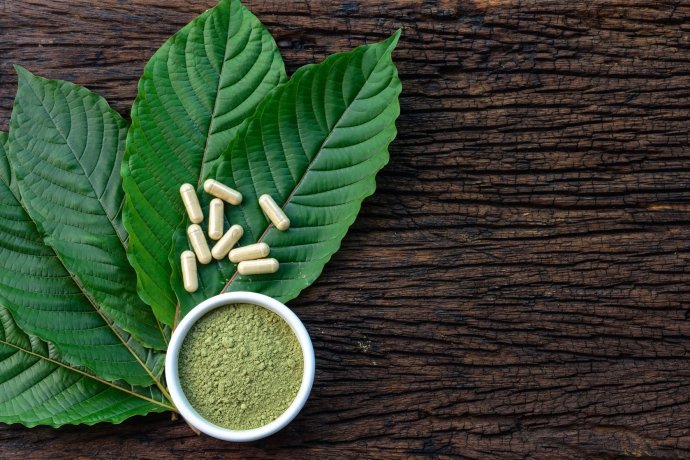WHAT IS KRATOM?
Kratom is a Southeast Asian tree-like plant that belongs to the same plant family as coffee and gardenias. It has stimulant and opiate-like effects that are dose-dependent. Furthermore, there is some anecdotal evidence to indicate that it could be useful in the treatment of withdrawal symptoms associated with opiate addiction. It may be used for an energy boost as well as some moderate pain relief.
The risk of using kratom appears to be particularly high in the case of Krypton, a herbal product labeled as a particularly potent type of kratom. Krypton is a blend of kratom and O-desmethyl tramadol, which is a metabolite of the pain reliever tramadol. The depressive effects on the CNS are amplified by this combination.
IS KRATOM HARMFUL?
Scientific information about the effects of kratoms is limited, and no randomized clinical trials are conducted to determine whether it is safe for human use. Most of our current knowledge of this drug based on anecdotal reports by user and doctors Kratom is not a controlled substance and it sold on the internet and head shop in various form, including:
- Loose chopped leaves
- Capsules
- Compressed tablets
Some chemicals are found in kratom interfere with drug-metabolizing enzymes in the liver and may cause a dangerous interaction with other drugs or medication. To get all the detail about detoxification click here myrecoverycorps.com.
SIDE EFFECTS:
The use of kratom is correlated with several side effects that vary in intensity from uncomfortable to severe. Its effect is dose-dependent and is similar to those found both for stimulant drugs and opiate, including:
- Facial flushing
- Pupillary constriction
- Constipation
- Itching
- Dizziness
- Vomiting
serous toxic effecys] to be rare among report by the user and health care provider but there is little information available is to estimate the true danger of kratom use. the majority of severe toxic reactions are linked with a high dose of kratom (>15 g) and characterized by seizures.
SHORTTERM EFFECTS OF KRATOM USE:
Because of the unique combination of chemicals in kratom, the short-term effects of the drugs are complex and variable. The balance between stimulant-like and opiate-like effects is dependent on the dosage, and even when taking the same dose, different patients have had drastically different experiences with the medication.
KRATOMS EFFECTS AT LOW DOSES:
At a low dose (1-5 g) of kratom stimulant-like effects predominant. This can be felt within 10 minutes and last for 60 to 90 minutes. Kratom’s primary stimulant-like effects are similar to amphetamine, but less severe, and include the following:
- Increases energy and alertness.
- Decreased appetite.
- Increased sociability
- Heightened libido
KRATOMS EFFECT ON MODERATE TO HIGH DOSES:
Kratom has mainly opioid-like effects that last for several hours at moderate to high doses (5-15 g). The euphoric ’’ high’’ induced by drugs is reportedly less intense than other opioid drugs, and some users describe their unpleasant experiences. Other opiate effects include:
- Drowsiness
- Reduction in the symptom of opioid withdrawal
- Cough depression
- Calm and dreamlike mental condition
- Pain reduction
LONGTERM EFFECTS OF KRATOM:
According to studies on chronic, high-dose use, this drug has several unusual long-term effects, including:
- Hyperpigmentation
- Anorexia
- Weight loss
- psychosis
POTENTAIL FOR ADDICTION:
The emergence of dependence and addiction is the most significant danger of long-term kratom use. Any of the chemicals in the medication trigger opiate signaling in the brain, which helps to alleviate the withdrawal symptoms triggered by addictive opioids like heroin and oxycodone. These characteristics strongly suggest that kratom can be addictive in and of itself.
EFFECTS OF KRATOM WITHDRAWAL:
Kratom addiction developed in people who used it regularly for at least six months. The dependent user of the drug suffers physical withdrawal symptoms similar to those of opiate if they stop taking it suddenly. And the symptoms of kratom withdrawal are:
- irritability
- sweating
- nausea
- high blood pressure
- insomnia intense craving of kratom
KRATOM WITHDRAWAL TREATMENTS:
Detoxing from kratom can be done in a professional detoxification center, where they will be monitored and receive medical help. Patients who undergo opioid addiction care in an inpatient or outpatient facility may be able to overcome their addiction and regain their health.






